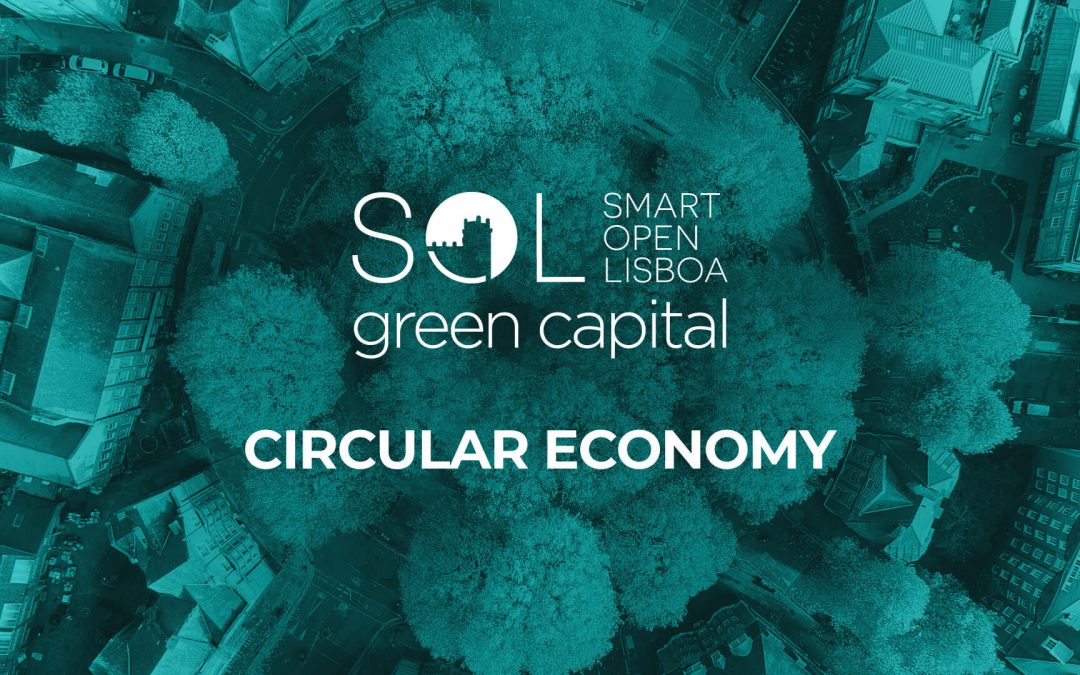
by cristina | Mar 11, 2021 | Featured
Circular economy is one of the industries Beta-i is focusing on in 2021. Finding new solutions that will reduce or eliminate waste while optimizing resources is a priority. Besides, innovation in this area has a great potential to grow.
SOL Green Capital is one of the examples of this year’s effort for a more sustainable world. This is the Green and Circular economy vertical of Smart Open Lisboa (SOL), a startup implementation program designed to upgrade the city’s life. Smart Cities focus on Green and Circular economy.
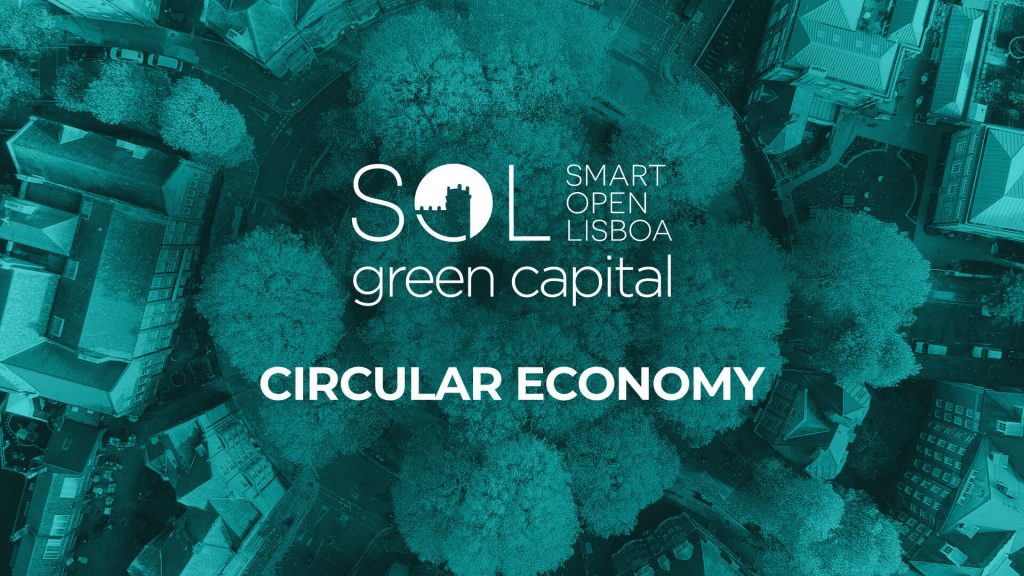
Focused on the validation and integration of innovative solutions, SOL Green Capital complements Lisbon’s identity as the European Green Capital 2020. Also, it leverages on collaborative innovation to turn it even more people-friendly, green and sustainable.
SOL Green Capital has been taking applications from startups to work closely with the piloting partners Águas de Portugal, Brisa, Delta Cafés, Galp and SONAE Sierra.
Applications closed on March 7, 2021 with a total of 188 applications from startups in 39 countries. As the eligible solutions should focus on turning the city smarter, greener, and more sustainable, they must also address one or more of the six challenges presented by the program. All challenges were represented in the applications received:
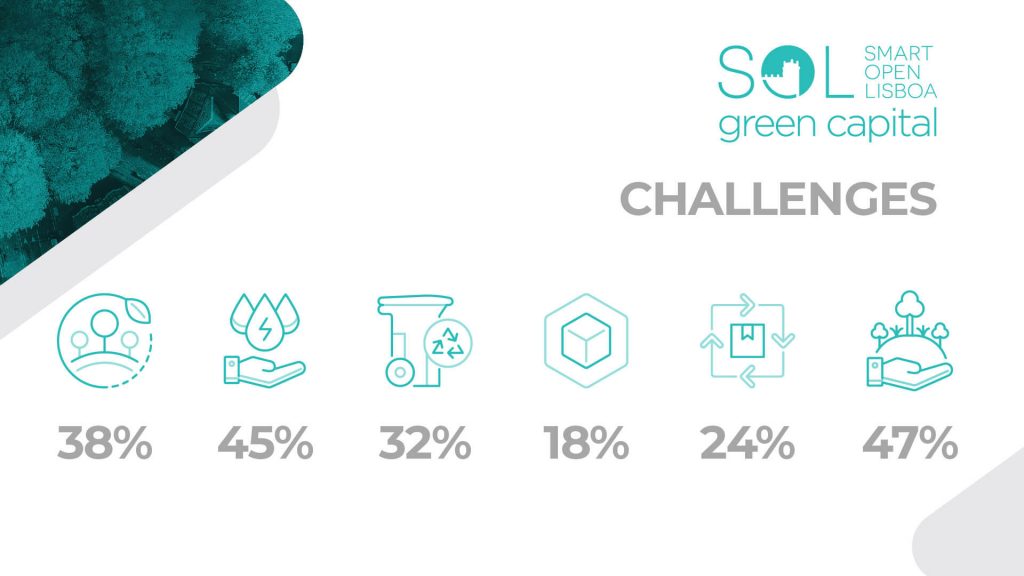
After a first screening of all applications, the pre-selected applicants will be performing an online pitch before the jury. Afterwards, about 15 to 20 startups will be taking part in the Bootcamp of the program.
Only the ones with the strongest fit will be moving forward to the Experimentation Phase. This is where the startup teams will work closely with the program partners who have selected them and work on their pilots, together.
SOL Green Capital’s Bootcamp will take place in April 2021. The Experimentation phase will occur right after, from April to July of the same year.

by cristina | Feb 8, 2021 | Featured
As the year of 2019 could not foresee what 2020 would bring, also every single industry could not predict the impacts of a pandemic in its trends. The energy sector is no exception, with different variations in the electricity demands, according to its source. As fossil fuels’ consumption has dropped in 2020, renewables have maintained, in general, a positive growth.
One of the major effects of the worldwide lockdowns lived during the pandemic was the drop in global electricity consumption. As it is expected to rebound in 2021, also renewable energy demand is expected to continue increasing in 2021, as it happened last year, along with its investment. If the collaboration efforts across this sector will, presumably, continue to increase, we’re looking to the rise of new business models and the evolution of energy transition.
Projected global change in power supply, 2020 and 2021
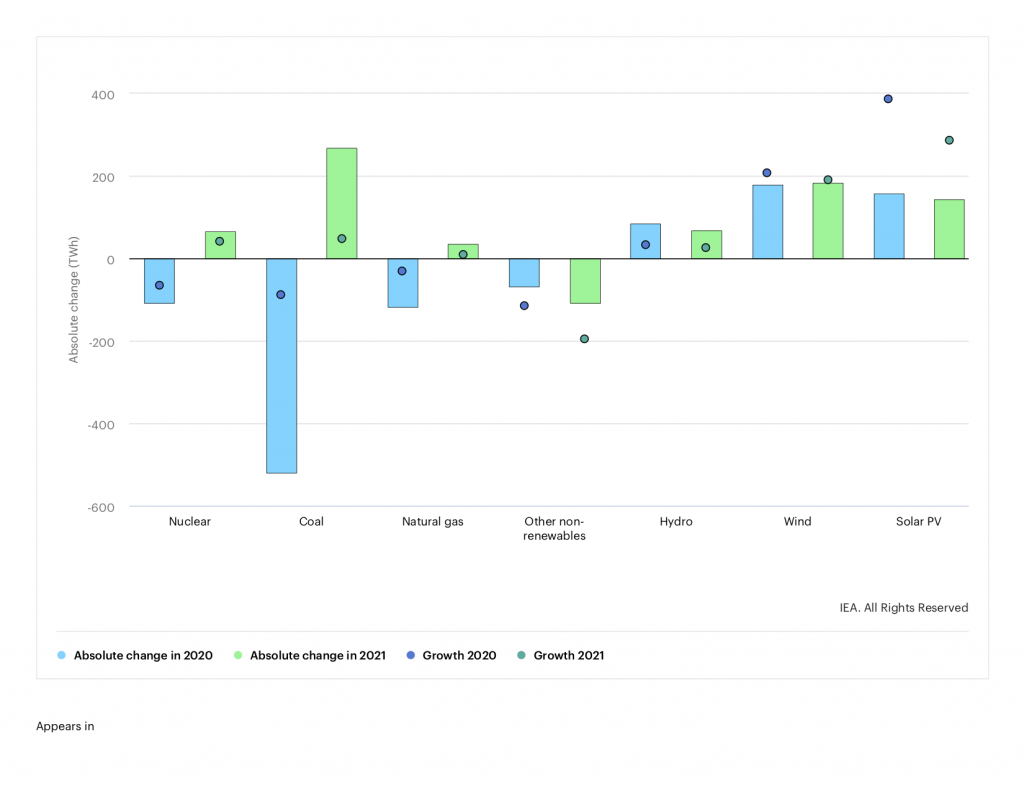
IEA, Projected global change in power supply, 2020 and 2021, IEA, Paris https://www.iea.org/data-and-statistics/charts/projected-global-change-in-power-supply-2020-and-2021
Meet Free Electrons
Free Electrons program is now on its fifth edition, so there is a very small chance you’re reading about it for the first time. Nevertheless, you should know that it represents a vision of a future where smart, clean and accessible energy is to transform lives everywhere. Considering that renewables are clearly on the rise, we’d say we continue to follow the right path, and a collaborative one:
It is an Open Innovation energy program

Free Electrons 2021
This means that the selected startups for this edition will work side by side with leading energy utilities. They will work together on pilot projects, commercially deploy products, facilitate investment opportunities and learn from each other.
Free Electrons 2021 is addressing several challenges in the energy sector. The way to do it? Innovation.
These are the challenges that the participating startups will be tackling:
- Energy management and efficiency
- Smart grids and energy communities
- Customer and utility resiliency
- Facility and asset management
- Connectivity & Communication solutions
The Application phase is now ongoing, until March 29.
After an online evaluation, the selected startups will showcase their solutions and their teams through a fast-paced pitch event and participate in intense one-on-one meetings with utilities. The closing of the Bootcamp will see successful startups go on to participate in the remaining modules.
All info at freeelectrons.org
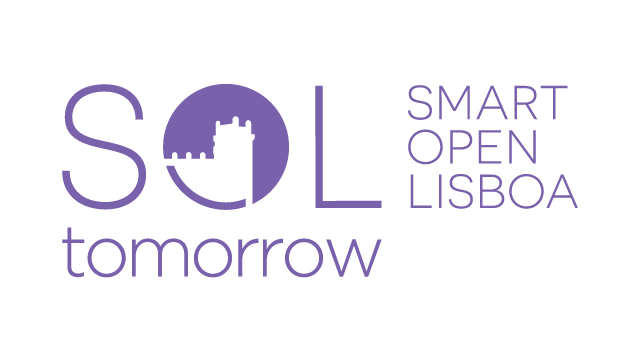
by Alisson Avila | Jun 19, 2020 | Corporates, Startups
Within the scope of Smart Open Lisbon platform, the Lisbon Municipality, alongside Beta-i, has launched SOL Tomorrow, a new program based on collaboration between key organizations in Portugal and startups from around the world to tackle specific social and economic challenges in the city of Lisbon caused by the COVID-19 pandemic. In addition to the City Hall, the program has a partnership with Aga Khan Foundation, PME Investimentos, LIDL Portugal, Santa Casa da Misericórdia de Lisboa, as well as Turismo de Portugal, Axians and NOS with the goal of collaborating with selected startups in the implementation of solutions with social impact.
With a focus on agile implementation, SOL Tomorrow is currently looking for startups to collaborate in the Portuguese capital restarting activities. The program, which will operate on a totally remote basis, has applications open for startups with solutions already tested or being implemented, with a focus on technologies applied to social issues and the city economy.
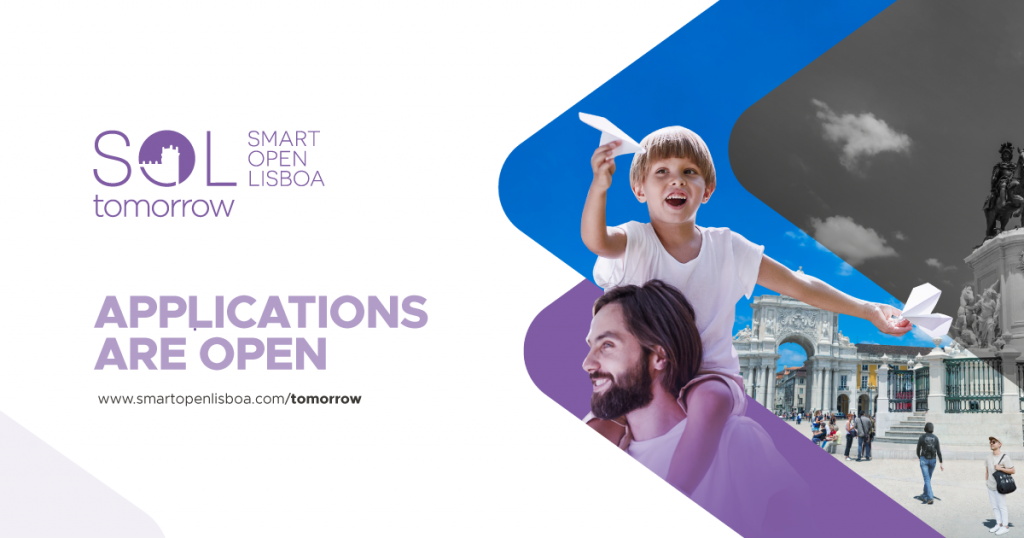
For Miguel Gaspar, responsible Councilor for the Economy and Innovation, Mobility and Security Division at the Lisbon City Council, “this is a special edition of the main open innovation program in the Portuguese capital. We will seek to respond to the multiple challenges we are experiencing and will continue to face in the recovery period from the economic crisis created by COVID-19, while stimulating the city’s entrepreneurial ecosystem and affirming Lisbon as one of the most innovative cities in Europe. In addition to having the participation of a diverse set of public and private partners, in this edition we decided to involve all areas of the executive power, bringing innovation to all activity sectors”.
According to Manuel Tânger, co-founder and Head of Innovation at Beta-i, “together with the Lisbon Municipality, we want to give an immediate answer to the most urgent challenges in a city where millions of people are restarting their routines. The SOL Tomorrow program wants to support startups that have almost immediate implementation solutions on topics such as mental health, job training and social isolation, to grow together with partner organizations and provide answers to the problems caused by the pandemic ”.
How it works
Over the course of three months and after the selection process, the best startups proposals will participate in a two-day online bootcamp to start developing implementation projects with the partners, adapted to the five key areas’ challenges previously established by partners: (i) economic and tourism recovery, through the creation of new practices of involvement with tourists and local communities, new forms of contactless payments, etc; (ii) new work paradigm, by reducing the physical presence in the city management functions, optimizing the public space for commercial activities, etc; (iii) remote work and learning, through the ability to check the city’s infrastructure remotely, e-Learning resources for children and adults on topics related to the crisis, etc; (iv) City resilience and confidence building, through real-time information on compliance measures with the sanitation of public and private spaces, overcrowding management technologies, etc; and finally (v) social emergency and unemployment, through topics such as digital and virtual integration of the elderly and digital education for people in vulnerable areas.
From July until September, each solution kick-started in the bootcamp phase will then be tested and implemented in real context.

Partners’ visions
According to Vanessa Romeu, Director of Corporate Communication at LIDL Portugal, “COVID-19 brought completely new challenges to the retail sector, and since the first day, as a company, we have been committed to creating solutions to support those who need it most. As such, being part of SOL Tomorrow makes perfect sense, as we are extremely concerned with helping to find lasting solutions to the new challenges our customers are experiencing”.
Marco Fernandes, CEO of PME Investimentos, points out that “Initiatives such as SOL Tomorrow are of the greatest importance due to the capacity to promote new ideas and new businesses, even more with a strong component of social innovation and sustainability. In the current context of the gradual revival of economies and activities from Covid19 negative impacts, a program like this gains even more relevance. It´s a great pleasure for PME Investimentos and for our 200M and Social Innovation Funds to be partners along with other such relevant public and private entities. We hope to support the entrepreneurs to achieve their goals and leverage their ‘tech for good’ projects, help building a more innovative and inclusive country ”.
Inês Sequeira, Director of Department of Entrepreneurship and Social Economy at Santa Casa da Misericórdia de Lisboa and Founder, Director of Casa do Impacto, highlights that “we hope the solutions presented in this program can be applied to the context of the city of Lisbon and our organization in a really effective way. For us, it is very important to find startups and entrepreneurs with the capacity to create impactful projects that respond to real challenges that organizations like Santa Casa live on the ground. We look forward to bringing a new look to some of our organization’s processes and some of our approaches. Our association with SOL Tomorrow brings us closer to new solutions and pilots with SCML equipment and services, inserted in a program that makes these partnerships agile and efficient. ”
Miguel Aguiar, B2B Corporate Innovation & Transformation Manager at NOS, says that “we have been partners of Smart Open Lisboa for some years and what we have seen is that through these programs we are able to interact with a series of entrepreneurs, being startups or partners. Our main objective at SOL Tomorrow is to find new models to help our customers adapt to this new standard and overcome their new challenges”.
And according to Ana Caldeira, Director of Innovation and Project Management at Turismo de Portugal, “we hope that together with all partners we can validate and implement startup solutions that are safe both for the inhabitants of the city of Lisbon, as well as for tourists visiting us on daily basis. In the face of the pandemic, we want to continue to provide safe and authentic experiences for Lisbon residents and travellers”.
SOL Tomorrow is one of the vertical programs of Smart Open Lisboa, an open innovation initiative by CML managed by Beta-i, with a focus on validating and integrating innovative solutions created to improve life in cities. In the long term, the initiative aims to be a platform for communication and collaboration between different stakeholders – the city, its citizens, companies and startups – and a framework to accelerate innovative solutions.
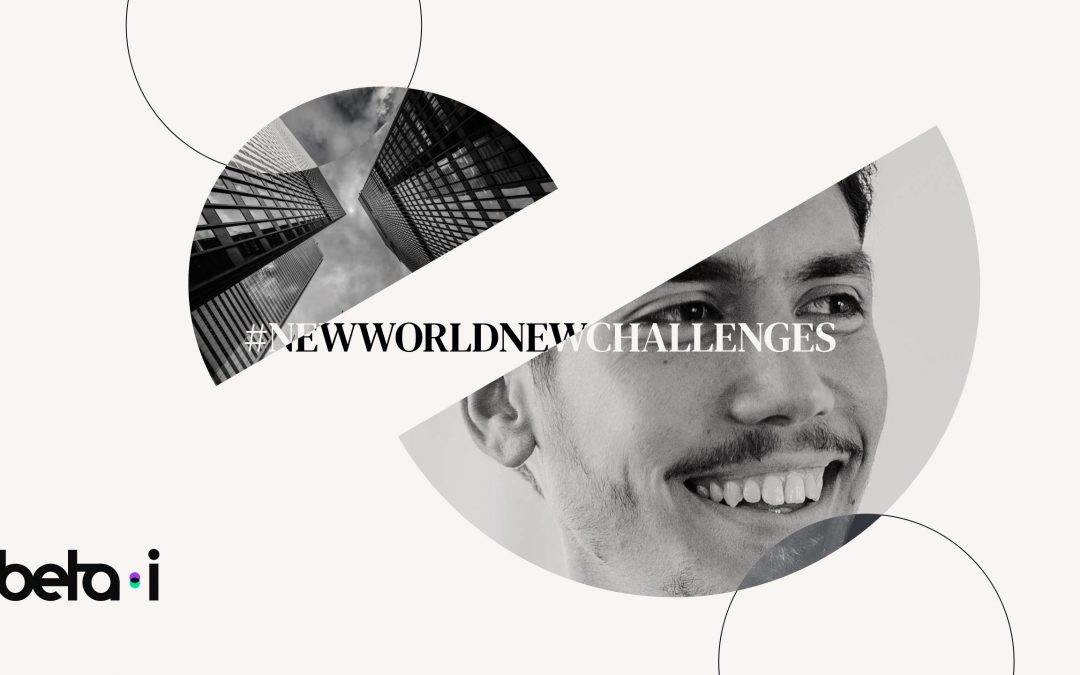
by Alisson Avila | Apr 29, 2020 | Corporates, Featured, Startups
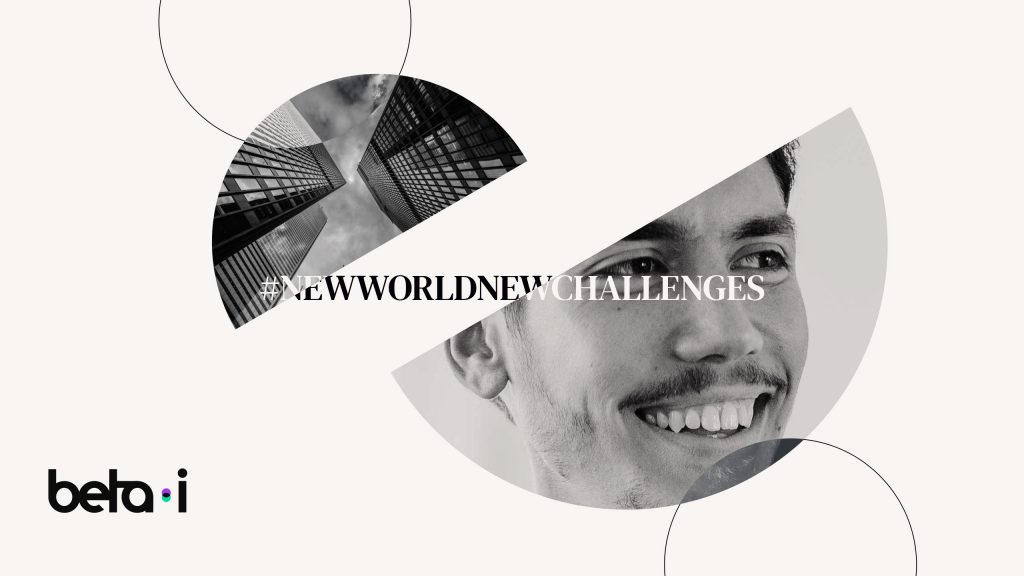
New world, new challenges: Kicking off with this post, we’ll be sharing during the next days and weeks some Questions & Answers in a chat with Beta-i’s CEO, Pedro Rocha Vieira. You’ll get to know more about the big picture of what’s happening at Beta-i right now. A new moment, a 10-years retrospective, our new brand, future scenarios, our startup support and our global reach.
But let’s start by talking with Pedro about this very moment: the breaking news 🙂
Pedro, what’s changing at Beta-i and what’s happening under this repositioning and restructuring
Well, after 10 years of hard work in different areas, we managed to fulfil this first-decade mission: we were, and we proudly are a key player in the establishment of an innovation ecosystem in Portugal. We contributed to the mindset transformation process which has been happening in the Portuguese ecosystem over time, and we managed to be recognized as one of the leading startup accelerators in Europe.
However, now we are no longer in the phase of feeding this innovation ecosystem at its base, but rather helping to give it greater strength within the economy as a whole. Lean approaches, new in-company processes and especially, the collaboration between corporates, public services or other institutions with startups is an inescapable movement.
That’s why we’re undergoing this cycle of change, in order to continue to be relevant at a different level. In the last 3 years, we started to work to become a different type of consultancy firm, totally focused on bringing the startup way of working and making business growth to large organizations and vice-versa, as well as deploying our ecosystem building experience on different geographies. We now have clients and projects in almost 20 countries, on 5 continents. This is a matter of fact, not a vision – but to be very honest, this was still not exactly understood by the market. That’s why we are leveraging our approach.
Therefore we reorganized and redefined our areas, focusing essentially on the collaborative innovation territory. We have a team of experts and different frameworks to converge global startups, large companies, universities, researchers, investors, mentors and governments competencies to work on innovation programs and develop pilot projects with impact on the economy.
How important is this new positioning in the current context?
We were born in times of crisis and now we are “reborn” again in a new period of crisis – and this evolution was made at the right time to respond to current needs.
If 10 years ago we contributed to the generation of new ideas and entrepreneurship approaches to stimulate the economy, today the challenges are different. It is necessary to connect the old with the new economy in a logic of collaboration and win-win – from facing up and coming competitors as a target to be crushed, to see them as a potential partner. This is a paradigmatic shift. It is necessary to support startups as an economic agent of change, helping them to collaborate with companies. And put companies to collaborate with other companies, too – it’s mandatory to be aware that only together we can build this new future. And we’re all experiencing that, at this very moment, due to the pandemic.
So this Beta-i repositioning ends up giving us the necessary approach to face the current challenges and promoting collaborative innovation where everyone benefits, which naturally also includes the people impacted by the developed solutions.
(to be continued…)











